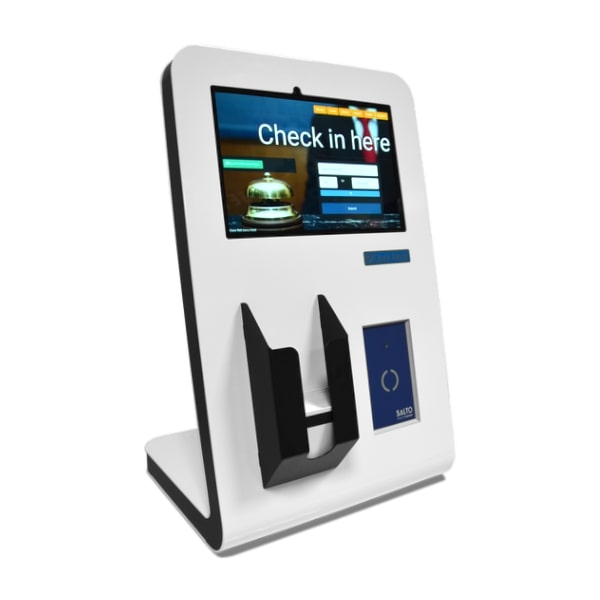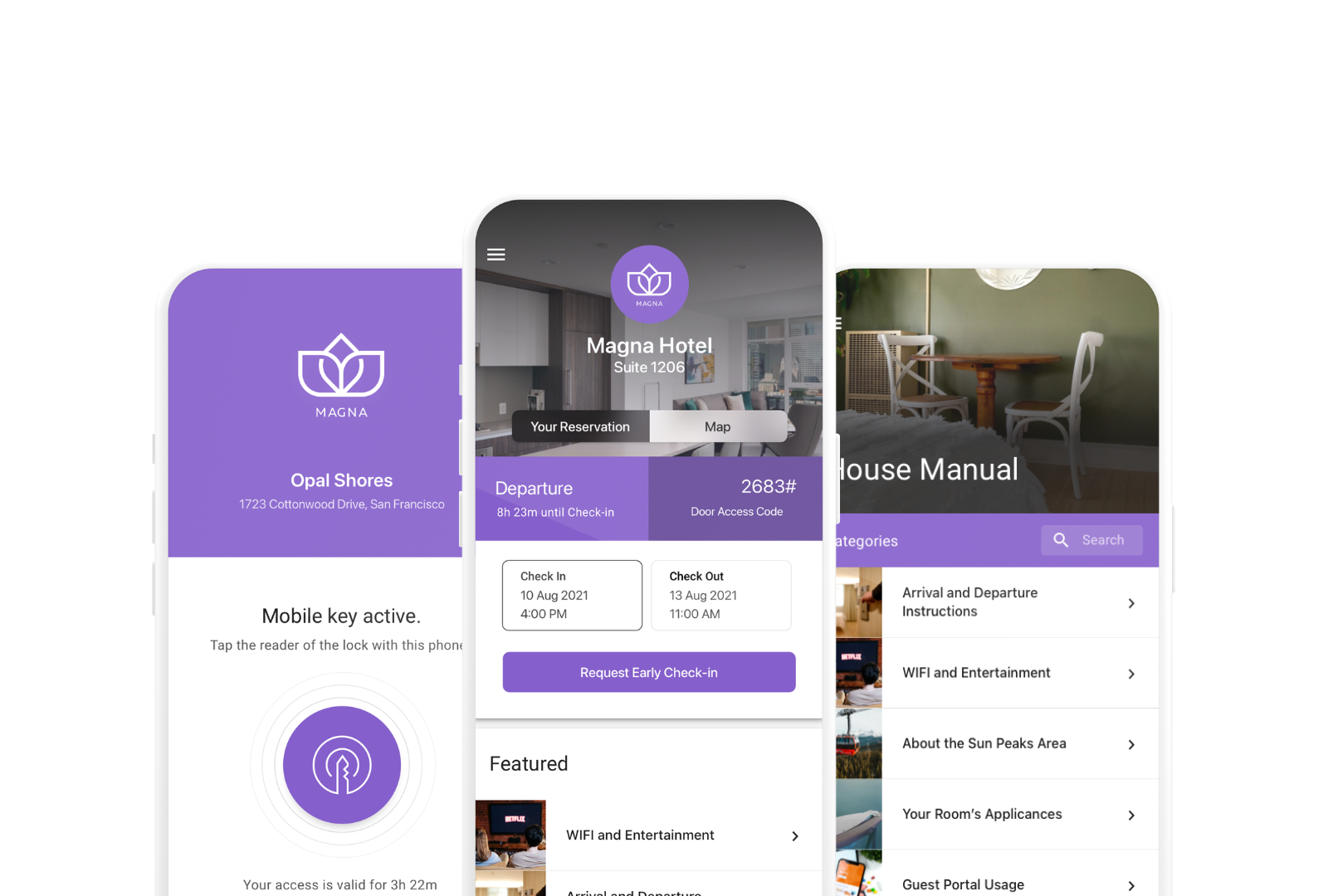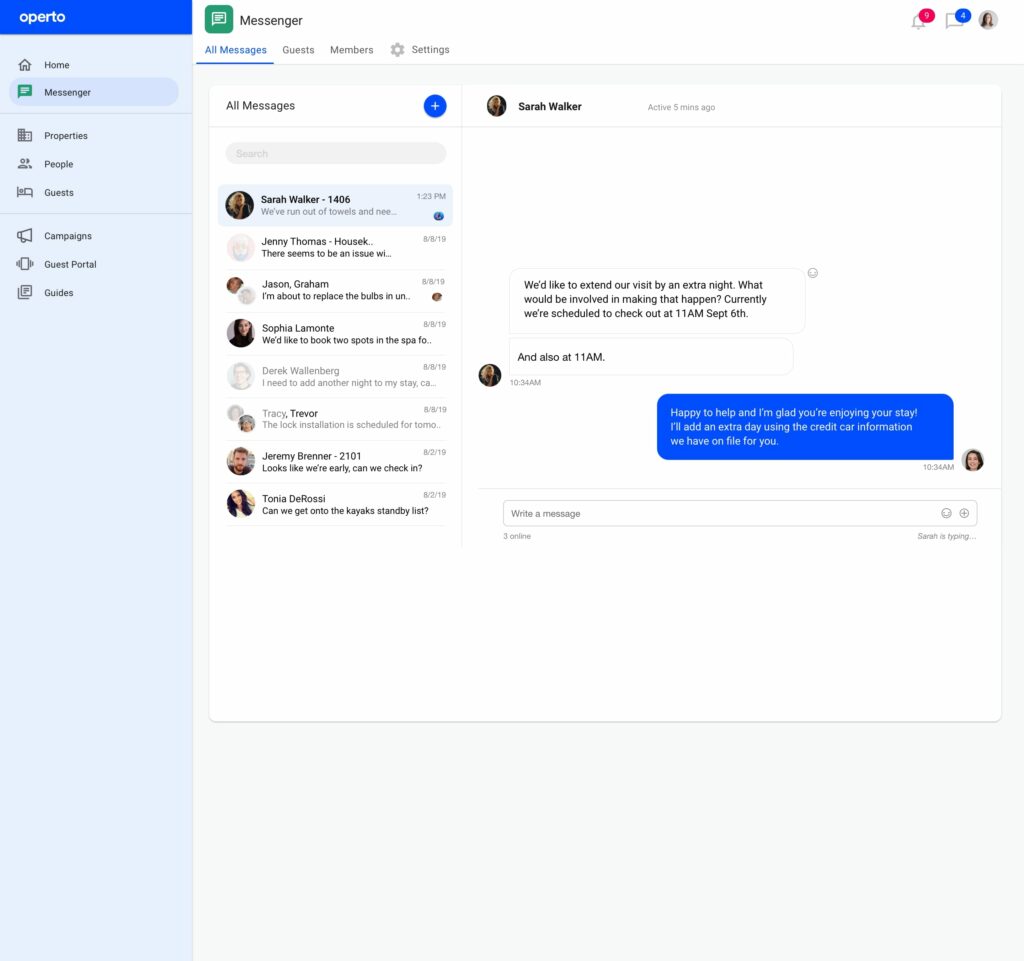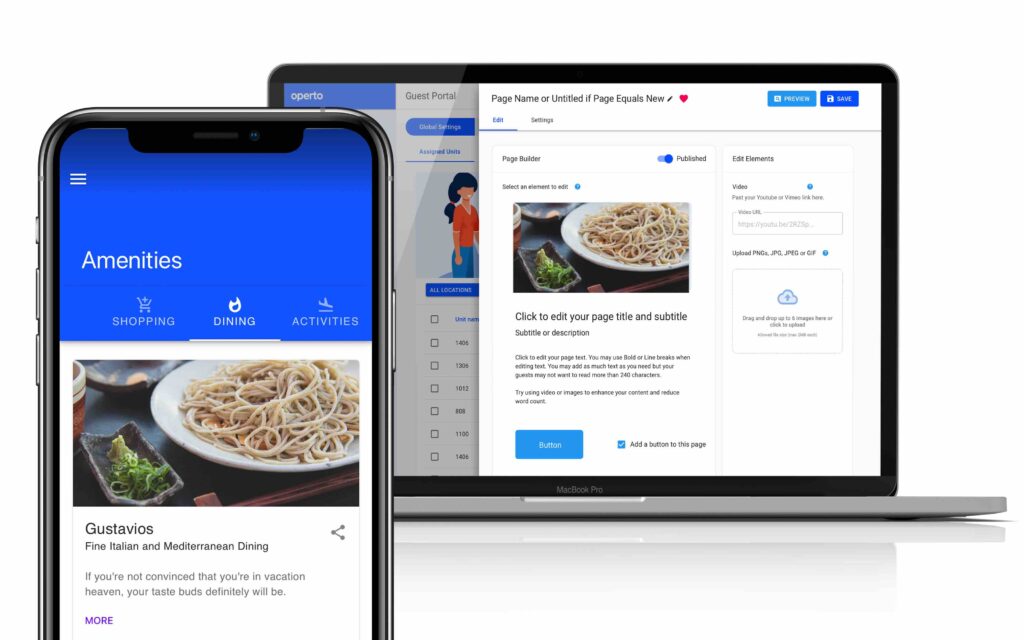Chapters
The Technology Operations Playbook
CHAPTER 3
Optimizing Guest Experience: The Disadvantages of Self Check-In Hotel Kiosks
“Steve Jobs put the greatest kiosk in the world in everyone’s pocket,” says Steve Davis, CEO of Operto, when discussing the inefficiency of self check-in kiosks.
And it’s a compelling argument. Why populate your lobby with machinery when you can achieve the same objectives and more with a guest’s smartphone?
Hotel kiosks serve an important function. They minimize the risk of human error, relieve pressure on the front desk, and reduce the need for staff. Yet they are also unhygienic and confusing, and take up valuable space.
In this article, we explore how mobile self check-in provides a better alternative. We look at how it facilitates a better guest experience, frees up staff, eliminates long lines, and can even help reduce cancellations.
Chapters
Reduce dependence on staff and improve guest check-in.
Disadvantages of self check-in hotel kiosks
Self check-in kiosks provide one solution to staffing shortages. However, it’s not a complete solution. With all of your guests trying to use a few screens in the lobby, they do not actually resolve the issue of lines on arrival.
They also:
- Frustrate and confuse guests
- Require staff to oversee and provide support for their use
- Don’t satisfy guest expectations on hygiene
Below, we look at all the ways in which self check-in kiosks negatively affect the guest experience.
1. Frustrate and confuse guests
After a long day of travel, guests want to be able to go straight to their rooms instead of having to navigate through a check-in process that takes additional time to complete. Self-service kiosks can be confusing for guests who aren’t familiar with this technology, and often a staff member is still required to provide additional support. From a guest perspective, it can seem like extra work for them, without any additional value.


2. Don’t eliminate queues
Because a lobby will typically only have a limited number of kiosks, guests will still need to line up on arrival to complete the check-in process—but the modern guest, used to smart tech, personalization, and autonomy, expects convenience above all else.
A check-in line won’t just be an inconvenience, though, it will feel unnecessary and even antiquated to many guests, especially if they’ve already experienced frictionless check-in elsewhere.
3. Don’t reduce labor costs much
87% of hotels are reporting staffing shortages. However, because staff are required on site to help with confused guests or machine malfunctions, self check-in kiosks don’t reduce your staffing needs enough.
The average self check-in kiosk costs between $1,500 and $5,000. Adding labor costs on top of this means that your check-in process, even with a kiosk in place, is still expensive and slow.
4. They’re unhygienic
Post-pandemic attitudes have intensified the need for meticulous hygiene throughout the hospitality space and visible processes on the same. One study by Deloitte found that 89% of people now cite cleanliness as a deciding factor when choosing somewhere to stay.
Asking guests to line up alongside each other and then handle shared touchscreens clearly falls short in this crucial area of guest expectations.
Why mobile self check-in is the answer
As Steve Davis says, “Why do you need to give up valuable real estate in your reception when people are carrying around kiosks in their pockets that they trust and know already?”
Mobile self check-in provides a far more flexible solution to check-in than kiosks, and the opportunity to deliver an enhanced customer experience.
Even better, if you implement keyless access, your guests can be completely independent from the moment of arrival. And this, as we explore in our breakdown on the benefits of mobile check-in below, will free your team from their typical front desk duties.
Upgrade your old locks without replacing them.
Imagine if you could actually eliminate front-desk line ups.
Hotel guests already know how their smartphones work; with mobile self check-in, guests are truly independent, and can go directly to their rooms upon arrival. This means no more lines, and no more guests looking confused or fed up while waiting in the lobby.
For example, using a solution like Operto Guest gives you a branded web app that guests can use to complete self check-in pre-arrival.



More engaged guests—and fewer cancellations
When guests have personal interactions with a hotel before their stay begins, they’re less likely to cancel their reservation. A strong pre-check-in procedure is a key customer retention strategy.
With Operto Guest, you can create digital guidebooks that provide additional value, too. All in one place, guests can find information about location, parking, local events, and more.
This doesn’t only ensure your guests are as independent as possible, but also that they’re engaged with your brand and their stay before they’ve even arrived.
The other key benefit of a digital guidebook is that it can preemptively answer common guest questions.
These might be questions about connecting to the WiFi, booking gym sessions, or using the pool. By placing this information in your guidebook, you provide more value to your guests, and minimize the number of questions and requests at the front desk.
Frees up staff to focus on more important tasks
With keyless access and a virtual concierge service in place, your team can focus on helping guests really get the most out of their stays, build rapport, and offer personalized recommendations based on guest profiles.
The result is happier guests—no more hassle checking in, no more keycards that are easy to lose, and, in the case of Operto Guest, a two-way chat function at their fingertips whenever they need it.



Upsells can be built into the process
A mobile solution to check-in also offers scope for in-app upsells. Anything from restaurant reservations to local excursions can be offered in the pre-stay phase of the guest journey. And since it’s all on mobile, it’s intuitive and immediate for your guest to navigate and use.
And with Operto Guest’s smart buttons, you can embed call-to-actions alongside your other content, so it’s as easy as possible for your guests to request an add-on service.



The end of hotel kiosks
With self-service technology, you can better manage your staff shortages, reduce the workload at your front desk, and streamline the check-in process. But check-in kiosks, with their poor hygiene, waiting times, and required on-hand staff, are only a half-solution.
Mobile self check-in, though, and the opportunity to free up staff and engage guests before their stay, allows you to exceed guest expectations, reduce cancellations, and improve morale and performance among your team.
With the addition of keyless access and in-app upsells, you now have a complete solution to streamlining operations without compromising on the guest experience.
Frequently asked questions about hotel kiosk disadvantages and self check-in
How does self check-in work at a hotel?
Hotel self check-in allows guests to complete their check-in without any direct interaction with your staff. At a kiosk, after entering their booking information and identifying details, they will be guided through an automated process. With mobile self check-in, the process happens straight from the guest’s smartphone via an app.
What are the functions of a hotel kiosk?
Providing a way for guests to manage their own experience, a hotel kiosk allows people to check in and check out independently. The interactive dashboard helps them to upload identification documents, sign registration details, and access their keys. Kiosks can also store data about customers to streamline processes if they return.
What’s the best alternative to hotel kiosks?
Mobile self check-in provides the best alternative to hotel kiosks. With no need for a physical station, guests can access all of the information they need efficiently and without frustration, while also avoiding lines on arrival. With Operto Guest, hotels can create a branded platform for self check-in that removes pressure from the front desk, includes two-way chat, and a digital guidebook to boost the guest experience.
Accelerate your check-in process and improe the guest experience with Operto Guest.